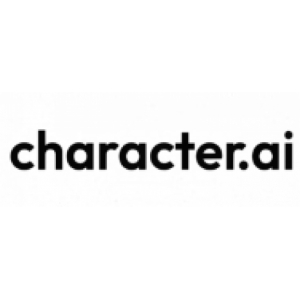Senior/Staff Software Engineer - Multimodal Backend
Character.ai-
Job Type
Full Time -
Experience
6-8 year -
Salary
$150,000 - $350,000 / Year -
Location
Menlo Park, CA, USA -
Job Function
-
Industry
Information Technology -
Qualification
Key Skills
Aartificial intelligence, Analytical and Problem solving, Apache Cassandra, Database, Docker, DynamoDB, Effective communication skills, GoLang, Kubernetes-K8s, MongoDB, NoSQL, PostgreSQL, Python Programming
Job Description
We are looking for a Senior or Staff level Backend Engineer who will focus on building systems and infrastructure in support of cutting-edge multimodal interfaces for AI. This role is at the heart of revolutionizing how users will engage with AI on our platform, by allowing them to use speech, gestures, or other natural interactions. As part of our collaborative team of engineers, designers, and machine learning researchers, you will play a pivotal role in these efforts by conceptualizing, architecting, designing, and deploying the backend systems that support these experiences.
Here are some example projects you might take on:
- Build a low-latency audio streaming backend for real-time human-AI phone call experience.
- Build a large scale video ingestion and storage infrastructure to power the ability for Characters to see.
- Build a generative video live-streaming platform.
- Manage, scale, and automate large scale deployments of streaming infrastructure with high availability.
Who we’re looking for
Required Experience:
- 2+ years of experience with audio and video streaming technologies (e.g, WebRTC, media servers, etc.).
- 5+ years experience building and scaling backend systems to support a fast growing consumer application.
- Experience writing highly performant services and strong knowledge of Golang and/or Python.
- Designing, implementing, and maintaining individual microservices that collectively form complex, scalable backend systems.
- An understanding of containerization technologies (like Docker) and orchestration tools (such as Kubernetes).
- Extensive experience with various database technologies, both relational (like PostgreSQL) and NoSQL (such as MongoDB, Cassandra, or DynamoDB). Proficiency in database design, sharding, replication, and tuning for high-traffic environments is highly desirable.
- Familiarity with caching mechanisms (like Redis, Memcached) to enhance application performance and response times.
- Strong analytical and problem-solving skills, with a knack for identifying and addressing bottlenecks, ensuring that backend systems perform optimally under varying loads.
- Proven ability to work collaboratively with product managers, designers, and frontend engineers to conceive, design, and implement new features that enhance user experience
- Excellent verbal and written communication skills, with the ability to articulate complex technical concepts to cross-functional teams and stakeholders.
- S. in Computer Science or equivalent experience.
Desired Qualities:
- You are proactive and have a “get things done” mindset
- You have a passion for staying updated with the latest industry trends and technologies, with a willingness to continuously learn and innovate, ensuring that our backend systems remain at the forefront of technological advancements
- You have a deep passion for creating innovative AI experiences, and you are product-focused. You are enthusiastic about building features and solutions that not only harness the power of AI but also resonate deeply with user needs, contributing to a transformative and engaging product.
You will be a good fit if you are proactive and have a “get things done” mindset. Given our current pace of growth and load on our systems, most people have had a significant impact during their first week at the company.
Join our visionary team, on-site 3-5 days a week, at the forefront of next-generation AGI.
About Character.AI
Founded in 2021 by AI pioneers Noam Shazeer and Daniel De Freitas, Character is a leading AI company offering personalized experiences through customizable AI 'Characters.' As one of the most widely used AI platforms worldwide, Character enables users to interact with AI tailored to their unique needs and preferences.
Noam co-invented core LLM tech and was recently honored as one of TIME's 100 Most Influential in AI. Daniel created LaMDA, the breakthrough conversational AI now powering Google's Bard.
In just two years, we achieved unicorn status and were named Google Play's AI App of the Year – a testament to our groundbreaking technology and vision.
Company Info.
Character.aiCharacter.ai is a neural language model chatbot service that can generate human-like text responses and participate in contextual conversation. Constructed by previous developers of Google's LaMDA, Noam Shazeer, and Daniel De Freitas, the beta model was made available to use by the public in September 2022.
-
IndustryArtificial intelligence,Computer software
-
No. of Employees100
-
LocationMenlo Park, CA, USA
-
Website
-
Jobs Posted
